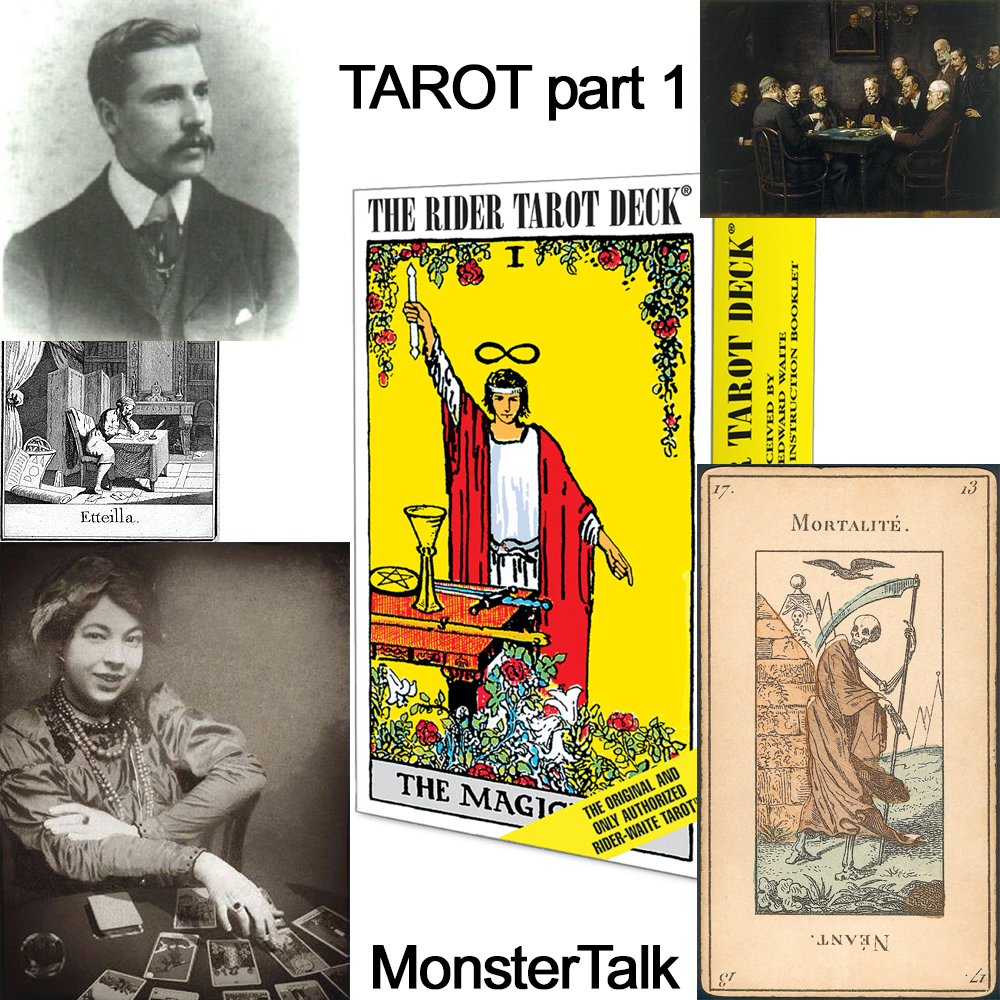
262 – Tarot (Part 1)
MonsterTalk begins its second season and its weekly release schedule with a look at the surprisingly mundane origin of the Tarot deck and how the practice of divination emerged in the late 1700s steeped in pseudo-antiquity.
Show Notes:
Trick-Taking Games – card games where each round has a winner, usually seeking most points over the duration of multiple rounds.
The Marseilles Deck (tarot.com) see also Wikipedia coverage.
A lot of what we know about historical Tarot and its relationship to divination comes from Michael Dummett (1925 – 1911) an English philosopher and academic.
The Game of Tarot: From Ferrara to Salt Lake City (1980) is out of print and way, way overpriced but you can read it on Scribd with a basic subscription.
A brief history of Playing Cards and further reading on the same topic over at Britannica.
A history of Cartomancy (wikipedia)
Forms of Divination (wikipedia)
A history of Tarot cards (from Bicycle playing card company)
Jean-Baptiste Alliette aka “Etteilla“ (1738 – 1791) the Frenchman who “invented” the use of Tarot for divination and tied it to ancient Egypt (via a false history, prior to the Rosetta stone and rediscovery of how to read hieroglyphs from Egypt)
He wrote a book called Etteilla, ou manière de se récréer avec un jeu de cartes (“Etteilla, or a Way to Entertain Yourself With a Deck of Cards”) in 1770.
Excerpt from Wikipedia:
“In 1781 the French Swiss Protestant clergyman and occultist Antoine Court who named himself Court de Gébelin published in his massive work Le Monde primitif his idea that the Tarot was actually an ancient Egyptian book of arcane wisdom; his work included an essay by the Comte de Mellet who first called tarot cards the Book of Thoth and, crucially, claimed that the Egyptians used the cards for fortune-telling and described what purported to be their method of divination.”
Note: The key to unlocking ancient Egyptian (the Rosetta Stone) hadn’t even been recovered yet so the idea that people are reading ancient Egyptian wisdom and using it to develop card divination to preserve some ancient wisdom is preposterous. The stone with its multiple languages repeating the same text was found in 1799 but wasn’t translated until 1822.
After the popularity of Court’s book, Alliette quickly produces:
Manière de se récréer avec le jeu de cartes nommées Tarots (“How to Entertain Yourself With the Deck of Cards Called Tarot”) in 1785
Rider-Waite (Smith) Tarot Deck
How to play the game Tarot (French style)
A Wicked Pack of Cards: Origins of the Occult Tarot– by Michael Dummett and Ronald Decker
U. S. Games Systems Inc. brought Tarot to America in 1967. Founder Stuart Kaplan (who passed away in 2021) spent a lot of time researching illustrator Pamela Coleman Smith and restoring her long overdue historical significance.
Previous episodes on Western Esotericism
1 thought on “262 – Tarot (Part 1)”
Comments are closed.
[…] More notes available on Part 1 of this series. […]